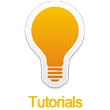Table of Contents
Chapter 1: What is Futures Trading
Chapter 2: How Futures Trading Works
Chapter 3: Futures Terminology
Chapter 4: Importance of Futures Market
Chapter 5: Limitations on Futures Trading
Chapter 6: Factors Affecting Futures
Chapter 7: Who Should Use Futures Trading
Chapter 8: How to Start Trading in Futures and Be Successful
Navigate This Page
Chapter 8: How to Start Trading in Futures
– Access to the Right Information Sources
– Historical Analysis
– Understanding Your Risk Appetite
Chapter 8: How to Start Trading in Futures
A futures trader can use different methods to make his investment depending on his level of expertise.
Experienced traders can opt to trade directly using brokers only to execute their transactions in the exchange. In this case, the investor is fully responsible for his futures contract and how it is maintained. He will need to track prices regularly and make the right decisions to safeguard his investment.
For those who are new in the market, managed future accounts are a good option. These are maintained by a broker who charges a fee for managing the futures contract and the investor’s account. The terms and conditions for managing the account are fixed beforehand when the account is opened. You get the advantage of professional expertise with this account.
You can also go for commodity ETFs (Exchange Traded Funds) or commodity pools, which allow smaller investors to participate in the futures markets. The pooled resources are invested in a single or many commodities, usually with a fund manager involved in taking investment decisions.
This is the easiest way to invest in futures. With a commodity pool, losses are proportionate to the investor’s contribution to the fund and because of the pooling of the resources, the investors can participate in trades which could otherwise have been beyond their reach.
Chapter 9: How to Become a Successful Futures Trader
A futures trader needs to put in a lot of research into his investment decisions. The prices of commodities are typically volatile and may see a lot of movement in a single day. It is important for the trader to track the prices regularly so that he can hedge his position with other futures contracts or close his position if necessary.
Access to the Right Information Sources
If you are trading through a brokerage then the broker may have detailed market information and analysis, which can prove to be very helpful in making your decisions. The broker may even have expert advice to offer if you are willing to pay an extra fee. Reliable and accurate information can also be obtained about commodity prices from the Government’s agriculture and commerce department and from the Federal Reserve.
You should also stay abreast with the latest financial and economic news so that you can take quick decisions to factor favorable and unfavorable events in your investment strategy.
A futures trader can also analyze past data to understand price patterns and impact of economic factors. This kind of charting methodology is often used in stock market investing to predict how the price of a stock will move. A good understanding of how to carry out technical analysis on historical data and charts is a skill that will help you make successful futures trades.
Understanding Your Risk Appetite
Despite all your research, there is still a chance that your futures trade could go wrong. This is where you need to assess how much losses you can afford. Never take a risk that can put you in serious financial distress. Only use your surplus funds to trade and choose the contract size depending on how much risk you are willing to take.





